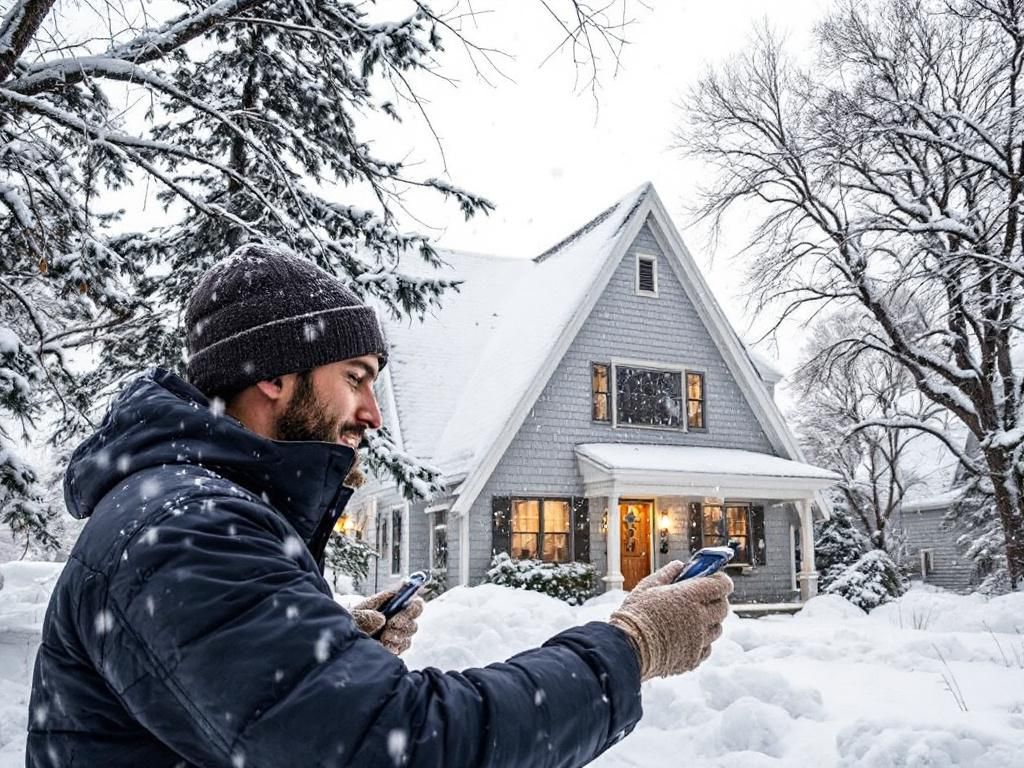Denver winters aren’t just cold—they’re unpredictable. Snowstorms can hit early and hard, temperatures can plummet overnight, and freezing conditions can cause serious damage if your property isn’t prepared. For landlords and property managers, winter prep isn’t just a checklist—it’s protection for your investment and peace of mind for your tenants.
Here’s how to winterize your Denver rental before the first snowflake falls.
1. Inspect and Insulate Pipes
Frozen pipes are one of the most common (and costly) winter maintenance issues. Denver’s fluctuating temperatures put plumbing systems at risk, especially in basements or exterior walls.
- Wrap exposed pipes in insulation sleeves or heat tape
- Check for leaks or cracks that could worsen in cold weather
- Remind tenants to keep the heat on and open cabinets near pipes during extreme cold
It’s also smart to clearly mark shut-off valves and explain emergency procedures in case of a burst.
2. Clean and Inspect the Gutters
Gutters clogged with fall leaves can create ice dams when snow starts to melt and refreeze. This can lead to water backing up under the roof or leaking into walls.
- Remove all leaves, branches, and debris
- Make sure downspouts direct water at least 5 feet away from the foundation
- Consider installing gutter guards to reduce build-up during winter
A little prevention here can save you thousands in water damage repairs.
3. Service the Heating System
Your tenants need reliable heat—and your system needs regular maintenance to deliver it.
- Schedule a furnace inspection and tune-up before winter
- Replace air filters to improve efficiency and air quality
- Make sure thermostats are working and programmable, if possible
Not only will this keep tenants comfortable, but it can also extend the life of your HVAC system and reduce emergency repair calls.
4. Seal Drafts and Check Insulation
Heat loss through drafty windows, doors, and poor insulation doesn’t just lead to higher energy bills—it can also create tenant complaints.
- Install weatherstripping around windows and doors
- Use door sweeps to block under-door drafts
- Inspect attic insulation for gaps or compressed areas
Encourage tenants to report any noticeable drafts or cold spots before temperatures dip.
5. Prepare for Snow and Ice
Snow removal is often the landlord’s responsibility in Denver, especially for multifamily units or properties with shared sidewalks.
- Have a snow removal service lined up before the first storm
- Stock ice melt and shovels on-site if tenants handle snow in single-family homes
- Mark the edges of driveways and paths to avoid damage from plows
Include snow removal expectations in your lease to avoid confusion.
6. Check Exterior Vents and Roof Conditions
Blocked dryer vents, damaged shingles, or sagging gutters can worsen in winter and lead to safety hazards or water intrusion.
- Ensure dryer vents and furnace exhausts are clear and unobstructed
- Have a roofer inspect for loose shingles or flashing issues
- Clear away branches that could snap and fall during snowstorms
Preventative maintenance here avoids emergency roof repairs in the middle of a storm.
7. Winterize Outdoor Features
From hose bibs to patios, outdoor spaces need protection too.
- Disconnect and drain garden hoses
- Shut off exterior water valves
- Cover AC units and outdoor faucets
- Store or secure outdoor furniture to prevent damage or wind hazards
Remind tenants not to use outdoor water fixtures once the temperature drops.
8. Review Emergency Procedures with Tenants
Preparation isn’t just physical—it’s also about communication.
- Provide clear instructions for reporting emergencies
- Share how to handle power outages or frozen pipes
- Make sure they know how to reach you or your property specialist during storms
A quick winter-prep info sheet can go a long way in reducing panic and confusion.
.jpg)
Why It Matters in Denver
Denver’s winter weather is known for wild swings—from sunny and dry one day to blizzard conditions the next. That unpredictability means you can’t afford to wait until problems show up.
Tenants notice when a property is well cared for—and they remember when it’s not. Being proactive keeps everyone safer, reduces complaints, and can even help with tenant retention.
Extra Support from the Pros
Don’t want to shoulder every item on the list alone? That’s where local maintenance support comes in.
RentalRiff connects Denver landlords with property specialists who handle seasonal prep, emergency repairs, and preventive maintenance—so your winter checklist doesn’t fall through the cracks.
Winter Prep Isn’t Optional—It’s Smart Management
The cold season brings enough stress on its own. By preparing your Denver rental for winter in advance, you protect your investment, minimize risks, and keep your tenants warm and worry-free.
And the earlier you act, the fewer surprises you’ll face when the first storm rolls in.

